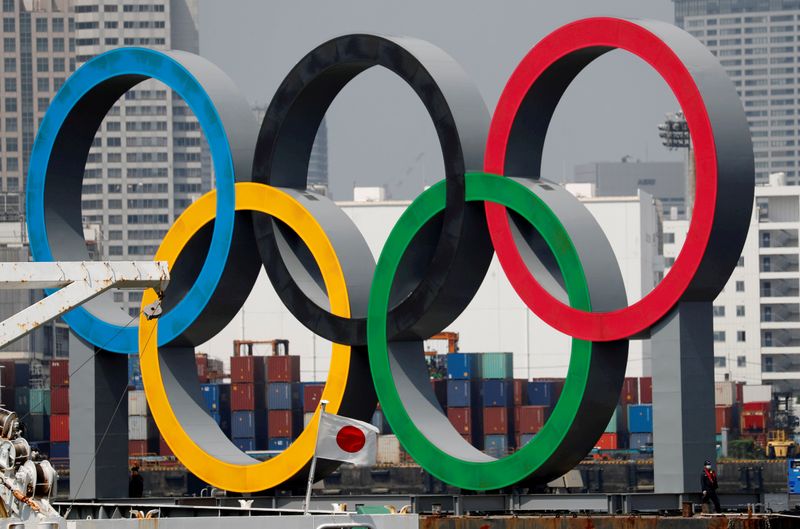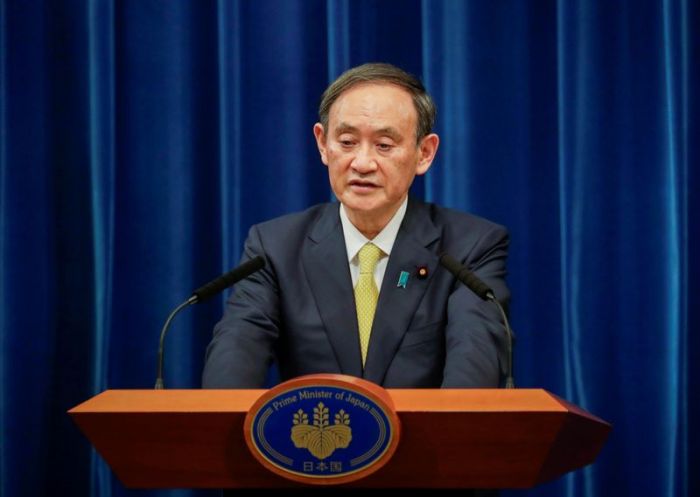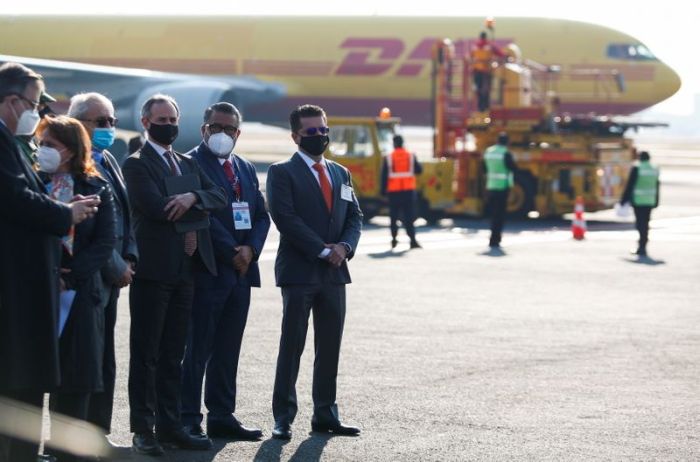TOKYO (Reuters) – Tokyo 2020 organisers said on Thursday that all 68 domestic sponsors for the Summer Olympics have agreed in principle to extend their contracts for the delayed games, as growing coronavirus infections in Japan overshadow the event.
The Tokyo Olympics had originally been scheduled for 2020 but were postponed by a year because of the pandemic.
“Partner companies told me about the difficult situation they are in because of the pandemic,” Tokyo 2020 President Yoshiro Mori told a news conference.
“But they also told me they definitely want the games to be held, and that they are willing to offer as much support as they can.”
Tokyo 2020 organisers expect more than 22 billion yen ($212 million) in additional contributions from them, Mori said.
The domestic sponsors include companies hit hard by a steep fall in travel demand amid the pandemic, such as Japan Airlines Co Ltd, All Nippon Airways Co Ltd and travel agency JTB Corp., which plans to cut its workforce by 6,500.
“There must have been various debates within each company … I believe they have decided to continue cooperating with us upon realising the historical significance of what may be a once-in-a-hundred-year event.”
Besides tourism and transportation companies, the list of sponsors also includes Canon Inc, Nippon Telegraph and Telephone Corp and other Japanese household names.
Recent Japanese newspaper polls show two-thirds of the public believe the game should be postponed again or cancelled altogether.
But Prime Minister Yoshihide Suga has repeatedly said he is determined to hold the Olympics as proof that humanity has defeated the virus.
On Monday, national associations of medical professionals declared a state of medical emergency as the country’s medical system creaks under the strain of the pandemic.
On Wednesday, Japan’s daily records of cases and fatalities both exceeded their previous records to reach 3,271 and 56, respectively, according to public broadcaster NHK.
($1 = 103.6300 yen)
(Reporting by Kiyoshi Takenaka; Editing by Christian Schmollinger and Tom Hogue)
























